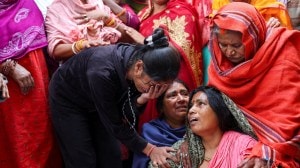Balance the supplements
Not many realise that strenuous exercise and physical activity can cause immuno-suppression when the bodys immune system stops working...
Not many realise that strenuous exercise and physical activity can cause immuno-suppression when the bodys immune system stops working and compromises its defences. Research indicates that athletes are at an increased risk of upper respiratory tract infection during periods of heavy training and the first two weeks after competitive events. This increased risk is most likely due to the effect of stress hormones such as adrenaline and cortisol. Other factors that contribute are intensity,duration and mode of exercise,and inadequate intake of food and supplements.
A balanced diet with adequate macro (proteins,carbohydrates and fats) and micro (vitamins and minerals) nutrients is essential for good performance and also to ensure that your immune system does not run out on you. Inadequate protein has been found to impair immunity and increase infections. Individuals at risk include vegetarians and athletes involved in sports such as wrestling,boxing,rowing,horse racing,gymnastics,figure skating,diving and dancing. Essential fats,especially the n-3 fats (omega-3 fats found in fish),have anti-inflammatory properties. A low carbohydrate intake is also thought to contribute to immuno-suppression by increased production of stress hormones and depletion of glucose,a key substrate for immune cells. Research indicates that consuming adequate carbohydrates before and after strenuous exercise helps the immune system post-exercise,when it is vulnerable.
Despite the heavy reliance on nutritional supplements by athletes,there isnt much evidence to support that high doses of antioxidants,vitamins,or other supplements like glutamine and echinacea can prevent exercise-induced immuno-suppression. Research indicates that there are several factors to this problem and there is no one supplement that can singlehandedly address it.
Much of the cell damage that occurs is caused by destructive chemicals known as free radicals,formed due to stress caused by exercise. These need to be neutralised by natural antioxidants. Even if supplements are consumed,balance is the key.
Hydration is critical during and after the exercise sessions. Dehydration has been known to induce stress,which can result in a weaker immune system.
In a nutshell,an adequate diet of carbohydrates,proteins and specific micro-nutrients including vitamins A,C,E,B6 and B12,and iron,zinc,copper and selenium is essential for optimum immune function.
Higher doses of these nutrients have not been shown to offer any advantage over what can be provided by a well-chosen diet. Current opinion is that athletes should invest in nutrient-rich foods and fluids that provide energy,a wide range of vitamins,minerals and other important substances,such as phyto- chemicals,found naturally in foods.
The athlete should:
*Maintain a diet that provides adequate fuel for training and recovery,with a good mix of essential nutrients including carbohydrates,proteins and essential fats
*Avoid nutritional deficiencies before,during and after training
*Include nutritional supplements only under the supervision of a qualified physician
*Take rest after training and performance
*Manage training loads and daily physical activity associated with work and other routine activities
*Limit high-intensity exercise bouts
*Ensure adequate sleep
*Manage psychological stress associated with work,training and competition






- 01
- 02
- 03
- 04
- 05

























